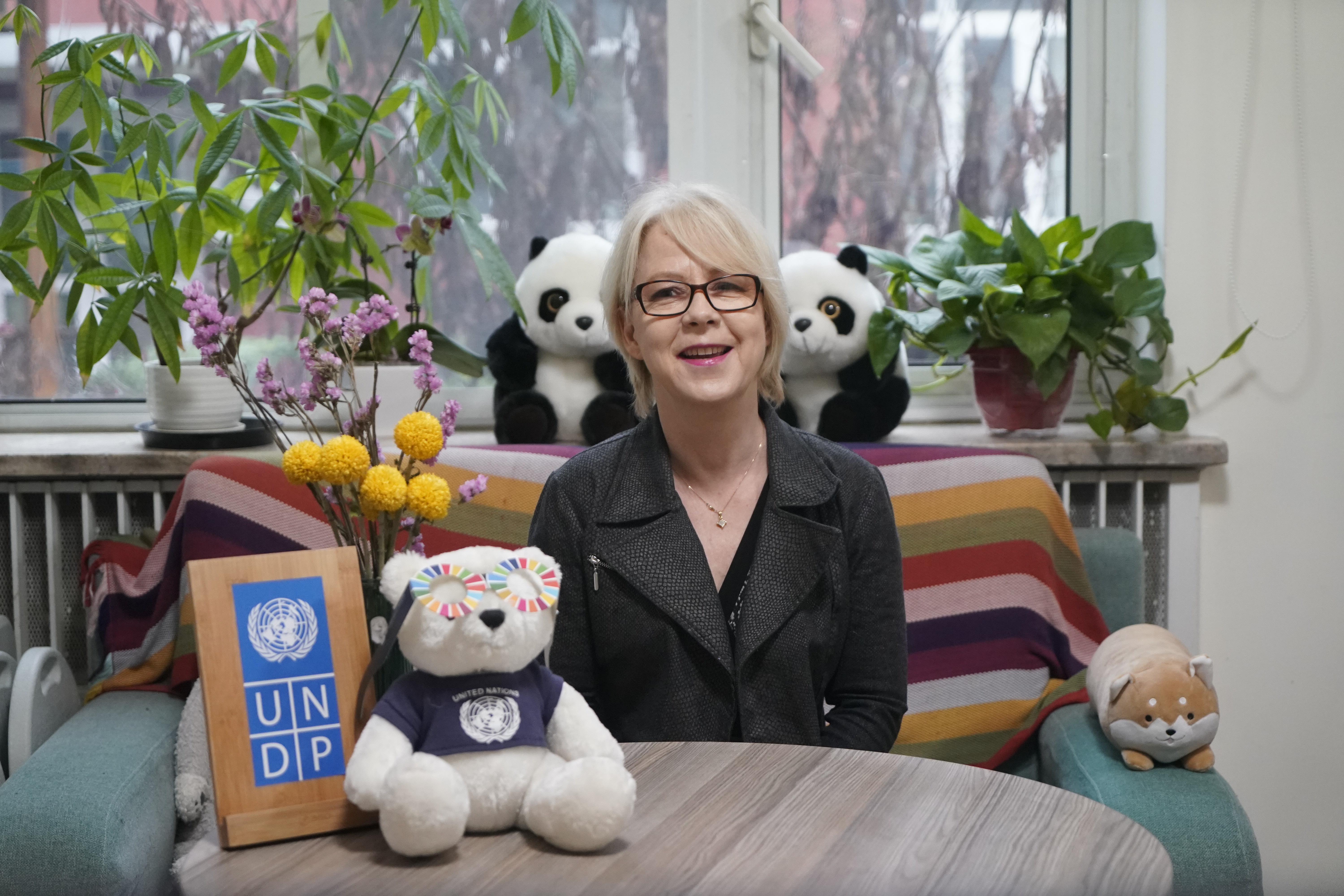UNDP: China's contribution to the achievement of SDG 1 is significant
china.org.cn by Liu Yizhou,May 25, 2020 Adjust font size:
China aims to eradicate extreme poverty by 2020 and since 2012, roughly 93.48 million Chinese people have been lifted out of poverty. UNDP Resident Representative in China, Beate Trankmann noted that China's target to eradicate extreme poverty is ambitious and unprecedented. She also perceived China's success in poverty reduction as historic, and China's contribution to the achievement of SDG 1 as significant.

Beate Trankmann, UNDP Resident Representative in China [Photo courtesy of UNDP China]
On the way towards poverty alleviation target, Trankmann pointed out that the effects of COVID-19 cannot be overlooked. To avoid people who have been lifted out of poverty sliding back and to help the vulnerable and disadvantaged in this pandemic, she mentioned, "the Leading Group Office of Poverty Alleviation and Development (LGOP) of the State Council, in collaboration with relevant ministries, has announced a series of actions to ensure continued efforts in poverty eradication. These include prioritizing the allocation of funds designated for poverty alleviation to heavily affected areas and industries, improving employment services and helping migrant workers return to work. In addition, the National Development and Reform Commission (NDRC) has also allocated 5.6 billion yuan (US$790 million) to help create job opportunities in local communities for the poor population."
Trankmann believed that China can achieve its 2020 target, but she suggested that vulnerable segments of the population will require special attention, as most of the current measures target industry and employers. She said, “Expanding the reach of existing social protection systems can assist people working in the informal sector whoare disproportionally vulnerable; many of them rely on low- and uncertain-income streams and may not be included in existing schemes. Targeted assistance, such as providing concessional loans to poor households with small family businesses or extending unemployment benefits to informal workers, could provide a much-needed buffer to ensure their livelihoods.”
Trankmann pointed out that China's development experiences provide substantive lessons to other developing countries, and can be effectively adapted to address local challenges through the South-South Cooperation (SSC) platform. "This can provide countries with the opportunity to accelerate growth, while also being conscious of environmental health." she said.
The Belt and Road Initiative (BRI), Trankmann indicated, has become an important driver of connectivity-related investments and lending. BRI moves in a way that safeguards global public goods, which is well aligned with the SDGs and context fit for the needs of developing countries.
"One particular aspect in this regard is to apply harmonized standards compatible with SDGs along the entire Belt and Road. This then can assist in bringing investments that are environmentally sustainable while also being inclusive by for example increasing decent work opportunities in the partnering countries," Trankmann added.
Poverty alleviation has been central to UNDP's cooperation with China. UNDP has long been supporting China in policy making. UNDP contributes ideas, innovation, advocacy, and international experience through a proof-of-concept approach with projects on the ground that can act as pilots to in-turn inform policies and can be scaled up by the government.